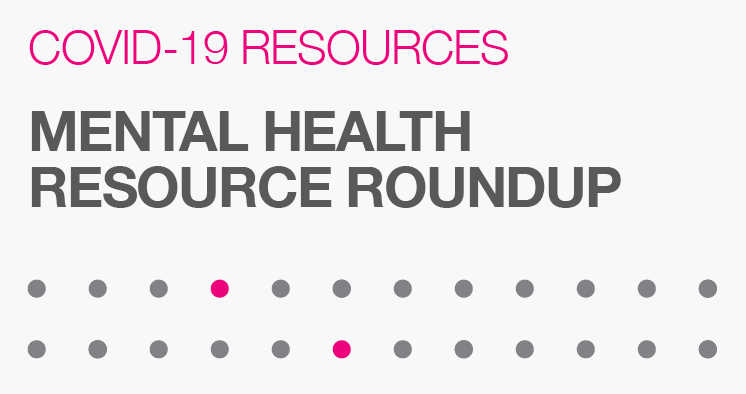COVID-19 and Mental Health

As we face unprecedented challenges and stress with the COVID-19 health crisis and inevitable economic effects, it’s critical that we maintain and protect our mental wellbeing and that of our colleagues, employees and families.
At a time when the majority of us are feeling worried, anxious or distressed about the challenges ahead, a number of organisations are offering general wellbeing advice and resources. The following websites, articles and other links serve as a useful reminder of the types of strategies you can use to maintain positive mental health during this difficult time.
Architects’ Mental Wellbeing Forum
The Architects’ Mental Wellbeing Forum in the UK has a website of useful resources, including a free Mental Wellbeing Toolkit, available for download. The ACA is currently working hard to get an Australian version of the Architects Mental Wellbeing Forum off the ground. More to come.
Beyond Blue
Beyond Blue has developed a page on Looking after your mental health during the coronavirus outbreak, including the following useful tips:
- Find a healthy balance in relation to media coverage
- Seek good quality information from credible sources
- Stay connected with friends, family and colleagues via email, social media, video conferencing or telephone
- Try to maintain physical activity
- Establish routines and take regular breaks
- Think of this period as a new experience that will have health benefits
Beyond Blue also hosts an online forum with a useful thread dedicated to ‘Coping during the Coronavirus outbreak’. Described by one user as a “gentle and welcoming place for everyone during this difficult time”, it gives people a safe space to communicate and share experiences and strategies for staying well.
World Health Organization
WHO has published a document on Mental Health and Psychosocial Considerations During COVID-19 Outbreak with advice for the general population as well as healthcare workers, carers of children, and older adults. WHO advises to protect yourself and be supportive and empathetic to others; find opportunities to amplify positive and hopeful stories; and seek information only from trusted sources. “Get the facts; not the rumors and misinformation. Gather information at regular intervals, from WHO website and local health authorities platforms, in order to help you distinguish facts from rumors. Facts can help to minimize fears.”
Lifeline
Lifeline has developed a guide to mental health and wellbeing during the Coronavirus COVID-19 outbreak, including a list of useful strategies to cope with social distancing, self-isolation or quarantine.
Lifeline is a national charity that offers 24/7 crisis support and suicide prevention services. The telephone counselling service is available on 13 11 14.
Mindspot
Mindspot has developed several resources to help people ‘Stay Resilient’ through this difficult period. These include ’10 psychological tips for coping with infectious diseases’ and a Facebook page with ‘Daily Tips for Staying Resilient’.
Mindspot is a free service for Australian adults who are experiencing difficulties with anxiety, stress, depression and low mood, providing online assessment and treatment courses, or connections to local services that can help.
Smiling Mind
Smiling Mind recognises that there will be many more people feeling stress, fear and anxiety, and has developed a page with several articles on how mindfulness can help.
‘Finding a place inside that feels calm and safe’ helps readers recognise the stress response and offers ‘3 quick ways to calm yourself’. It argues that “This is not about denying or pushing away the reality of the health crisis we are all grappling with. It’s about finding ways to give your mind and body a break by connecting with what is actually happening in this moment, right now.”
‘How mindfulness can help during Coronavirus’ offers practical tools and techniques to help you manage uncertainty, reduce anxiety and stay connected and grounded. It helps you to recognise your own personal warning signs when things are close to tipping point and learning to calm down and soothe your nervous system. It also flags the benefits of taking ‘7 Healthy Brain Breaks’ to give your brain and body the necessary respite it needs.
Black Dog Institute
Dr Jill Newby, Associate Professor of Psychology at UNSW, has developed an article on ’10 tips for managing anxiety during COVID-19’, with excellent tips on channelling your anxious energy into action; cutting down or stopping the behaviours fuelling your anxiety; being aware of negative thoughts and not giving them too much power; looking after your body; and staying connected with others.
The Black Dog Institute also has a comprehensive Workplace Mental Health Toolkit available for download, which helps employers and employees recognise the signs of anxiety or depression in colleagues and gives guidance on how to help.
